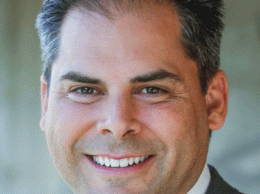By Rodney Brown
Members of the California Bankers Association annually travel to Washington, D.C., to speak with our elected representatives about some of the major legislative issues that are a priority for our industry and our customers.
On our fall trip this year, we learned firsthand how truly gridlocked this Congress is, and the unfortunate impact it is having on important public-policy matters.
Statistically, there is no argument about how unproductive recent sessions of Congress have been.
The prior congressional session, the 112th, passed only 219 bills that were signed into law, compared to 383 bills in the 111th and 460 in the 110th.
By comparison, Harry Truman’s “do-nothing” Congress of 1946-47 passed 906 bills that became law. This current session of Congress, which has passed just 142 bills since January 2013, is truly disappointing.
One measure deserving of action is H.R. 2673, the Portfolio Lending and Mortgage Access Act. This bill would allow banks to make loans to creditworthy consumers who do not currently meet requirements of the qualified mortgage, or QM, rule established by the Dodd-Frank Act.
These customers include small-business owners and professionals who have fluctuating incomes and individuals who live in rural communities, as well as low-and moderate-income individuals who do not meet the debt-to-income requirements.
Commercial banks have long played a unique role in offering customizable mortgages and consumer loans tailored to fit the distinct needs of the borrowers in their communities.
However, the compliance burden and legal risks posed by the current QM standard, particularly with respect to the ability-to-repay provision, have had a chilling effect on extension of mortgage credit.
Many banks no longer offer residential mortgages due to the stringent requirements of QM and the risk of litigation for failure to comply, even if such failure is inadvertent.
H.R. 2673 would give banks greater underwriting flexibility by allowing banks that originate a loan, and hold it in portfolio for the life of the loan, to automatically satisfy the QM requirements.
California’s banking community strongly supports H.R. 2673, a common-sense approach that deserves attention. The measure will allow portfolio lenders to make more credit available, safely and soundly, to borrowers who they view as good credit risks.
None other than former Rep. Barney Frank, principal author of the Dodd-Frank Act, who when asked about the bill during a July House Financial Services Committee hearing titled, “Assessing the Dodd-Frank Act Impact Four Years Later,” stated that he would likely support any measure, including H.R. 2673, that encourages greater risk retention by banks.
While the measure passed out of the House Financial Services Committee with some Democratic support, it’s unclear when the full House may vote on the bill, as the House has already sent the Senate more than 350 bills which Senate Majority Leader Harry Reid has refused to take up.
Efforts to overhaul the tax code have also been left in limbo. We have strongly advocated that Congress re-examine the federal income-tax-exempt status of credit unions, a $1 trillion industry that deprives the U.S. Treasury of nearly $2 billion every year.
Credit unions like to portray themselves as “mom-and-pop” shops serving people of modest means, yet the vast majority of credit unions are indistinguishable from banks.
Nationally, there are 208 credit unions with more than $1 billion in assets, bigger than 90 percent of the banks in the country. California is home to 36 of these credit unions.
Credit unions were established in the 1930s with the specific purpose of providing credit to people of modest means, and were granted federal income-tax-exempt status to support that mission.
But numerous studies, including reports from the U.S. Government Accountability Office and the National Community Reinvestment Coalition, show that banks do a better job in serving low- and moderate-income consumers than credit unions do.
The justification for continuing the tax exempt status of large, bank-like credit unions, no longer exists and Congress should act now to end this unwarranted subsidy.
While this session of Congress is poised to take the title of the least productive Congress ever, we hope they will at least act before the end of the year on these two very important issues.
• Santa Barbara resident Rodney Brown is president and CEO of the California Bankers Association, one of the largest state banking trade associations in the country.






 Print
Print Email
Email

















